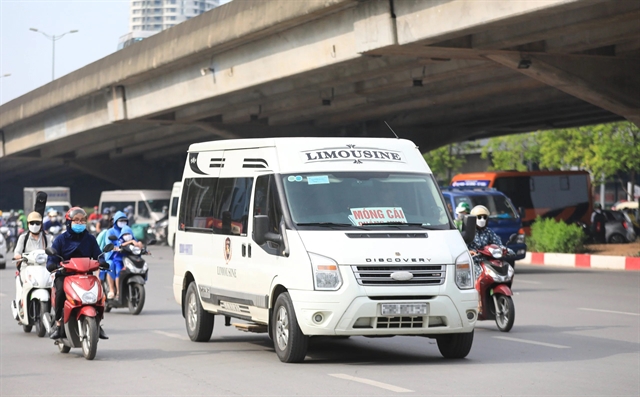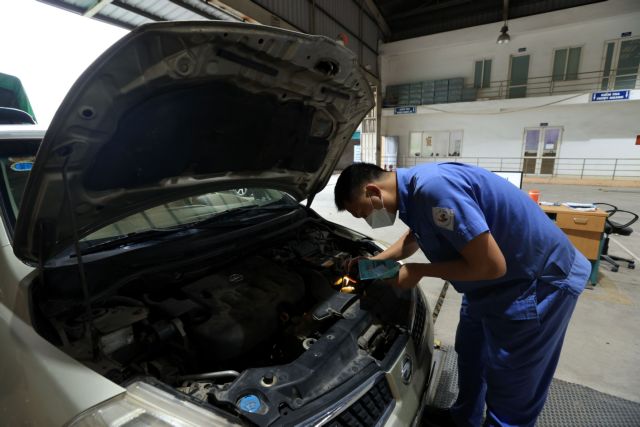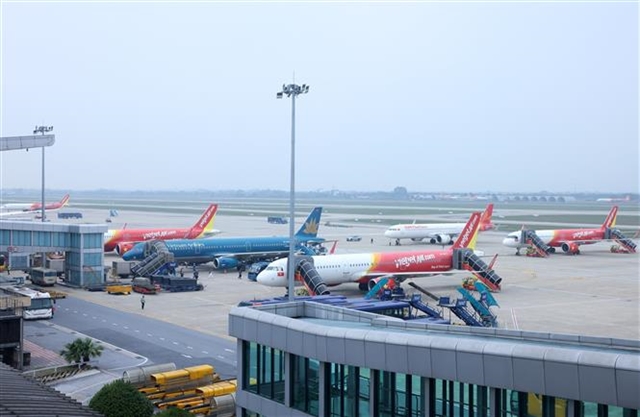 Economy
Economy

 |
| A vehicle is inspected at a vehicle inspection centre in Hà Nội. Currently, 275 CVIs remain active out of 295 registered CVIs in the country. — VNA/VNS Photo Phan Tuấn Anh |
HÀ NỘI — The Ministry of Transport is taking a tough stance on corruption in the vehicle inspection system, following a series of high-profile cases where inspectors were caught accepting bribes to overlook safety violations.
The Gia Lâm District People's Court in Hà Nội on July 15 sentenced ten inspectors to prison for accepting bribes to pass vehicles that did not meet safety standards.
According to the indictment, the inspectors, the Centre for Vehicle Inspection (CVI) 29.02S's former employees, instructed car owners to leave money inside their vehicles, ranging from VNĐ100,000 (US$4) to VNĐ200,000 per vehicle.
They then collected and divided it among themselves, with the centre's director taking the largest share. The court found they had received VNĐ426 million (US$16,800) in bribes.
Nguyễn Khánh Tùng, the centre's former director, was sentenced to 33 months in prison and Nguyễn Khánh Hưng, the centre's former deputy director, 31 months.
The remaining eight convicted were given suspended sentences of between 26 and 30 months.
The case is the latest in a series of bribery scandals involving Việt Nam's vehicle inspection system. In recent months, many other inspectors have been arrested and charged with similar offences.
The Ministry of Transport has issued a document outlining a multi-pronged approach to improve the situation, which involves consulting the Department of Science, Technology and Environment for advice on tightening controls on inspection activities.
The document also highlights the tasks for the Vietnam Register, which include reviewing and advising the Ministry on legal and technical issues related to inspection work, promoting the use of information technology in supervision and management, stepping up the training of inspectors and staying vigilant to sectors that are susceptible to bribery.
The Departments of Transport are tasked with complying strictly with the Ministry's instructions on supervising inspection activities, leveraging surveillance cameras for better monitoring and enforcement and conducting surprise inspections to root out misconduct at their provinces' CVIs.
According to the National Traffic Safety Committee, 275 CVIs remain active out of 295 registered CVIs in the country. In the first six months of 2024, they inspected about 2.8 million vehicles, of which more than 450,000 failed to meet technical safety standards.
With more inspectors to be tried in the coming months, the Vietnam Register is concerned about inspector shortages that could lead to vehicles lining up in CVIs, causing congestion in the system.
In response, the Ministry reveals that it is drafting a new decree amending Decree No.30 and Decree No.139 on vehicle inspection, which is expected to avert the bottlenecks.
In the first half of the year, CVIs also inspected around 1,800 railway carriages, 130 locomotives and 14,800 inland waterway vessels. Meanwhile, 200,000 new automobiles and 1,150,000 motorcycles and electric motorbikes were registered nationwide. — VNS




